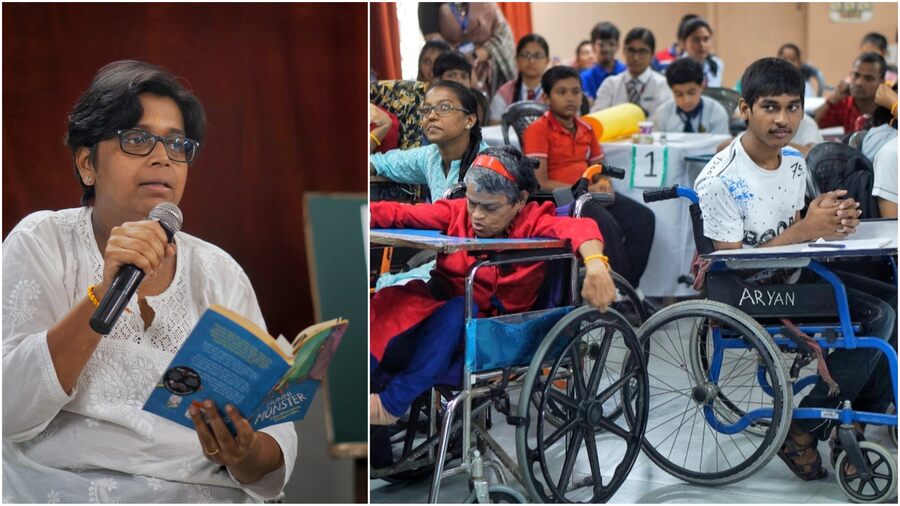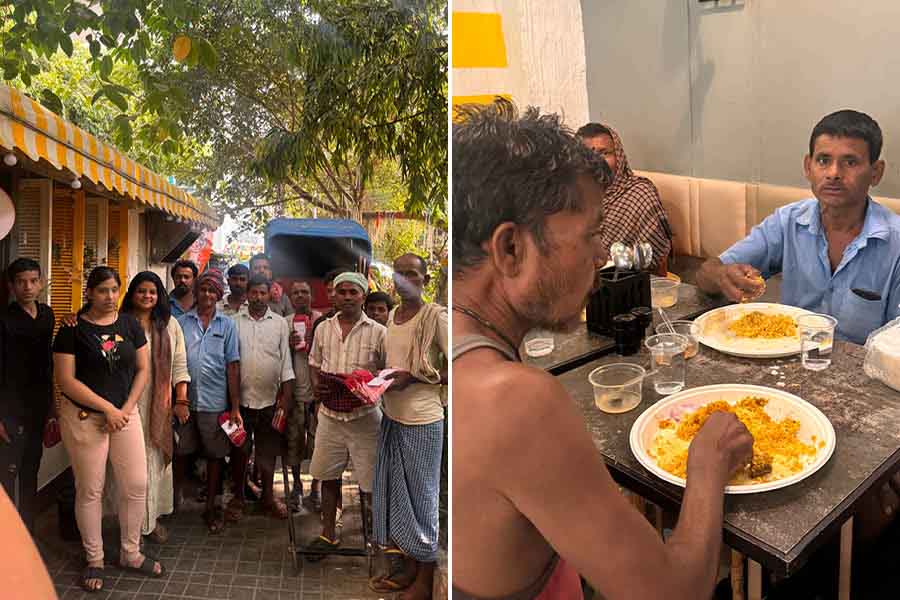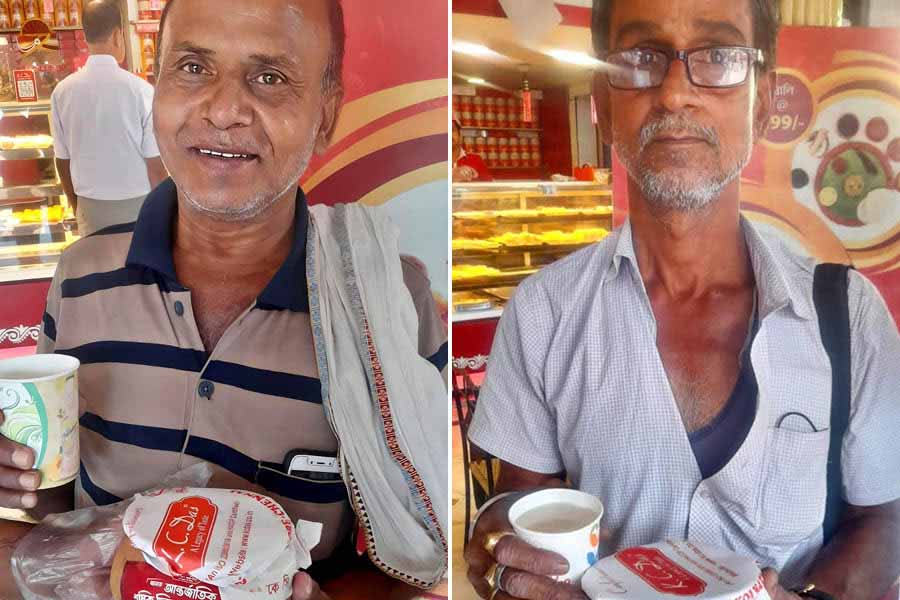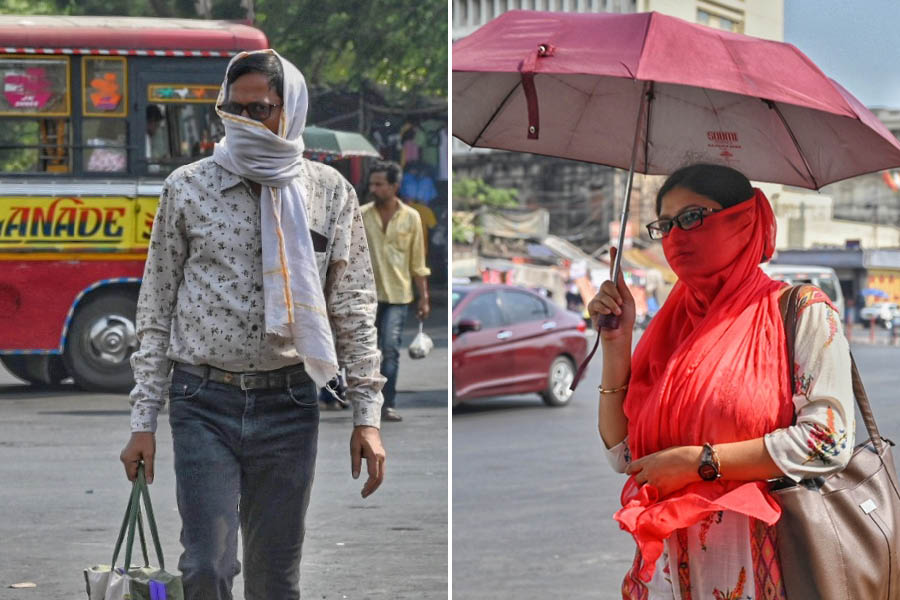How do we define a monster? For most of us, it is the gigantic and grotesque creature of lore that exists solely for destruction. For some, it is also an unnamed fear that makes us peep into our closets with trepidation and check under the beds at wee hours of the night. But the one emotion underlining the idea of a monster is definitely fear. Fear of the unknown and unknowable. But does the unfamiliar always deserve that label? This is a question that doctor and author Madhurima Vidyarthi explores in her book Munni Monster, from which she read out excerpts during an interactive session at the Indian Institute of Cerebral Palsy (IICP) on July 19.
The event was attended by students of IICP, South Point High School (Junior Campus), Indus Valley World School, Bidya Bharati Girls’ High School. Alipore Takshal Vidyapith for Girls and Akshar School.
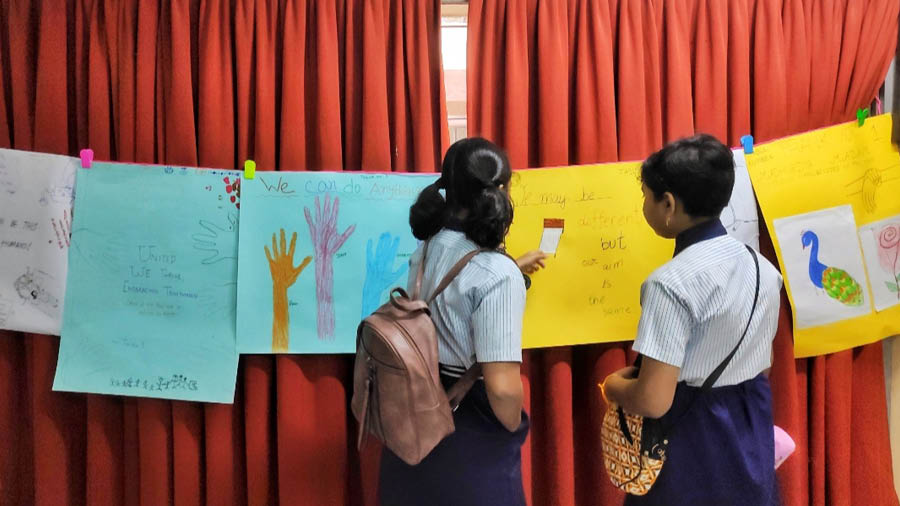
The artwork created by the students
“Inclusivity means there is no difference between ‘them’ and ‘us’”
Munni, the central character of the book, has cerebral palsy and is modelled upon the author’s aunt-in-law. The story revolves around how, initially, Munni is perceived as a ‘monster’ by Mishti, the 10-year-old protagonist of the story and how by the end of the book she comes to love and accept Munni.
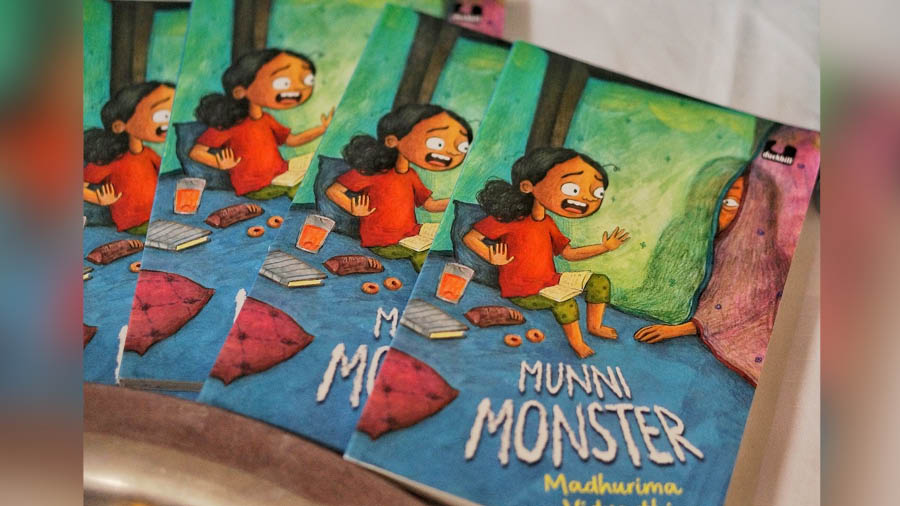
Copies of Munni Monster at the event
As Vidyarthi read out from the book, the students came up with questions and also enthusiastically answered questions asked by the author. Most of the questions centred around the reason for Munni being called a monster. Vidyarthi explained that there are several families who do not recognise and accept cerebral palsy and also don’t take appropriate measures to treat it. Thus, the condition forever remains an enigma and those suffering from it continue to be treated differently.
Drawing upon her own experience of being subjected to racial and gender discrimination while working in the United Kingdom as a doctor, Vidyarthi said that inclusivity is all- pervasive. “I was discriminated against throughout my professional life because of my race, my accent and my gender. True inclusivity means the absence of divides. It means there is no difference between ‘them’ and ‘us’,” she said.
Communication is key
Sometimes, it becomes difficult for people with cerebral palsy to communicate with others. But that doesn’t stop them from expressing their enormous creative and intellectual potential. The students of IICP are trained by Augmented and Alternative Communication (AAC) trainers on how to use different AAC devices to express themselves. Students Chandan Das, Mohammad Aryan, Debangshu Roy and Sampa Das demonstrated for the audience the devices that they use to communicate. Debangshu used a voice output device called Kathamala, Chandan used a Spell Board and Sampa used a Spell Board along with a Kathamala. Aryan used a Samsung Tab with Akashvani software to not only welcome Vidyarthi but also to let everyone know how happy he was to be present at the event.
Bridging gaps together
Soon after, the children were made to participate in an inclusive group activity where the students of the attending schools and that of IICP collaborated to create unique pieces of artwork.
"Our objective for today's activity was to see how children from mainstream schools overcome barriers to communicate with children who have cerebral palsy. The book, in fact, is about how a child overcomes her own fear and judgement and embraces someone different from her. We wanted to see if these children could do so," said Suchetana Mukherjee, principal of the Centre for Special Education (IICP unit).
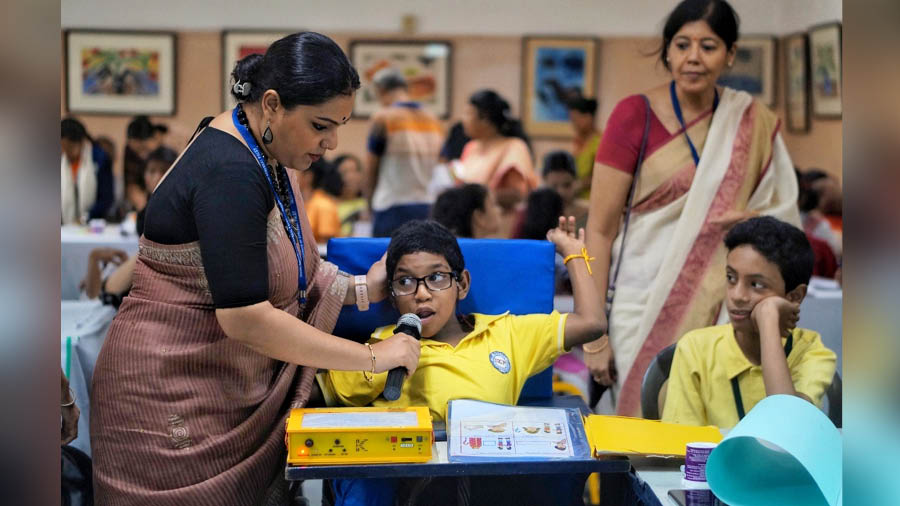
Debangshu Roy uses a voice output device called Kathamala to communicate
Aradhita Ray of Indus Valley World School was the team lead of one of the groups. For her, the experience of working with the students of IICP was “beautiful”. “Our theme was ‘Together we Thrive’. For our activity, we placed everyone’s hands on paper and traced them. We used thumbprints for those who could not keep their hands properly. Even though we faced some issues in communication, we had a teacher who translated whatever they (the students of IICP) wanted to tell us. I would like to work with them in the future,” said Aradhita.
Labels need to be removed
“Awareness and knowledge for people in the mainstream are necessary for us to help and make any difference in the lives of those who are disabled. What we forget is that disability can be acquired and the needs for an acquired disability is almost the same as that of a disability one is born with. Labels need to be removed as they are very dangerous,” Vidyarthi said, outlining what she felt was necessary to encourage greater inclusivity.
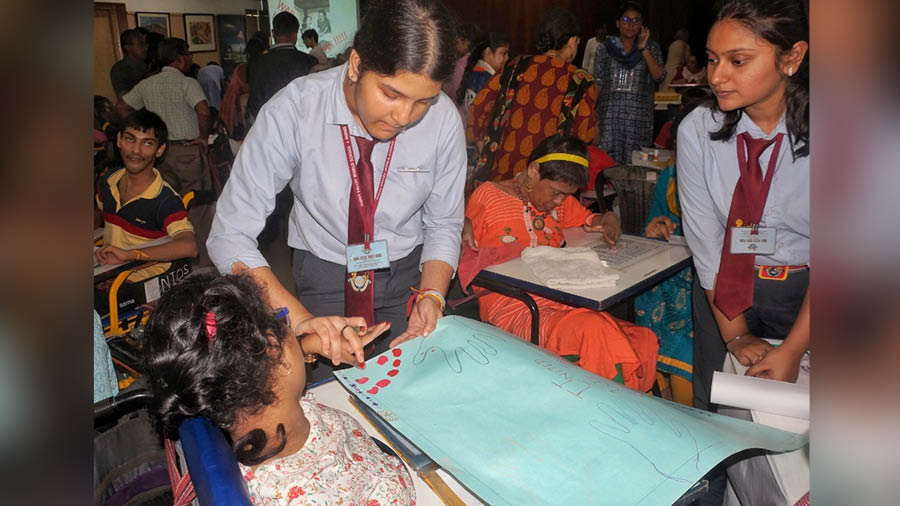
Aradhita Ray working with the students of her group
The need for inclusivity was the impetus behind organising the event. “We always want our children to get more opportunities because it is through more opportunities that we can hope for inclusiveness. Reading is something that everyone does and having Dr. Vidyarthi was a huge bonus. Communication when not limited by speech can be extremely empowering,” said Madhumita Dasgupta, deputy head, training, HRD at IICP.
“The book has been the keystone to this event and it has been an interesting way of getting children together and for children to realise that nobody is different. There is something special about each child and that came through very nicely today,” concluded Dr. Sudha Kaul, founder, trustee and vice-chairperson, IICP.


